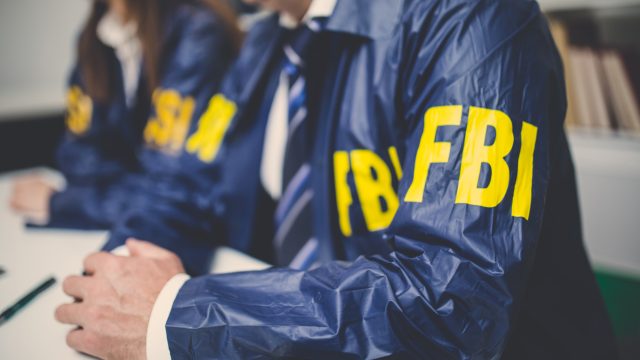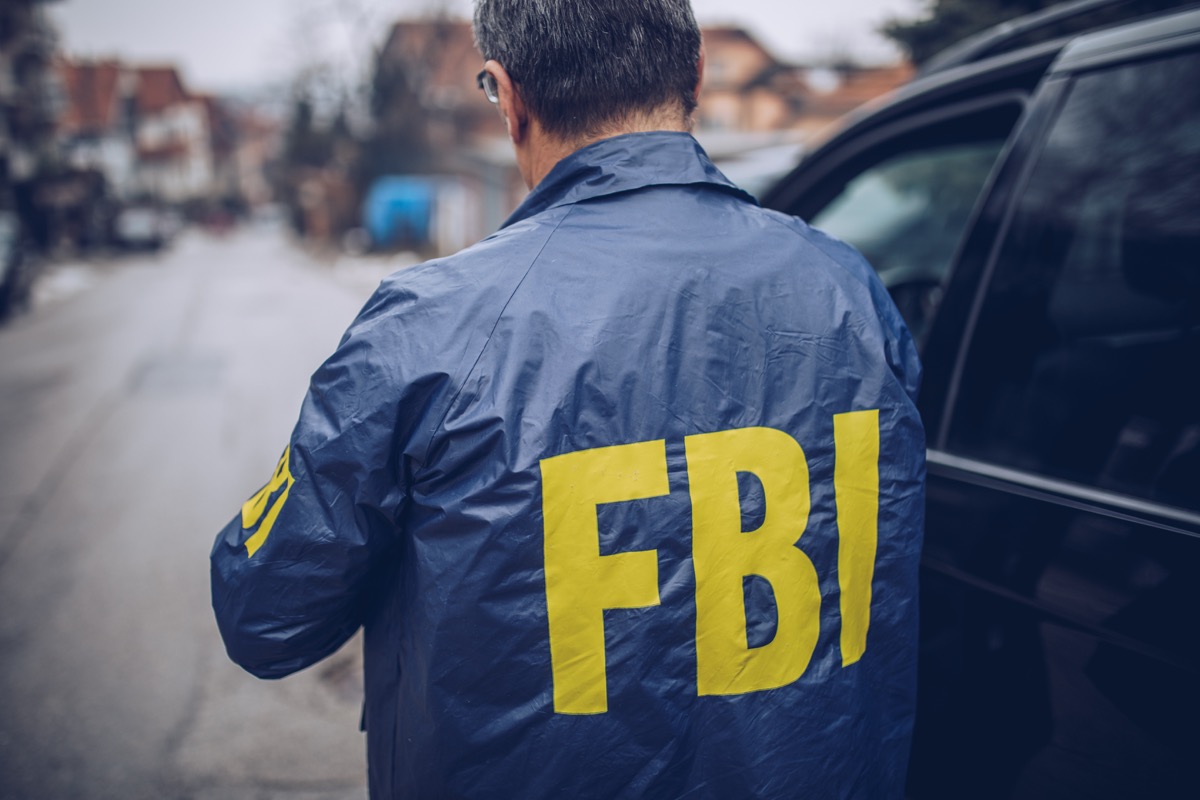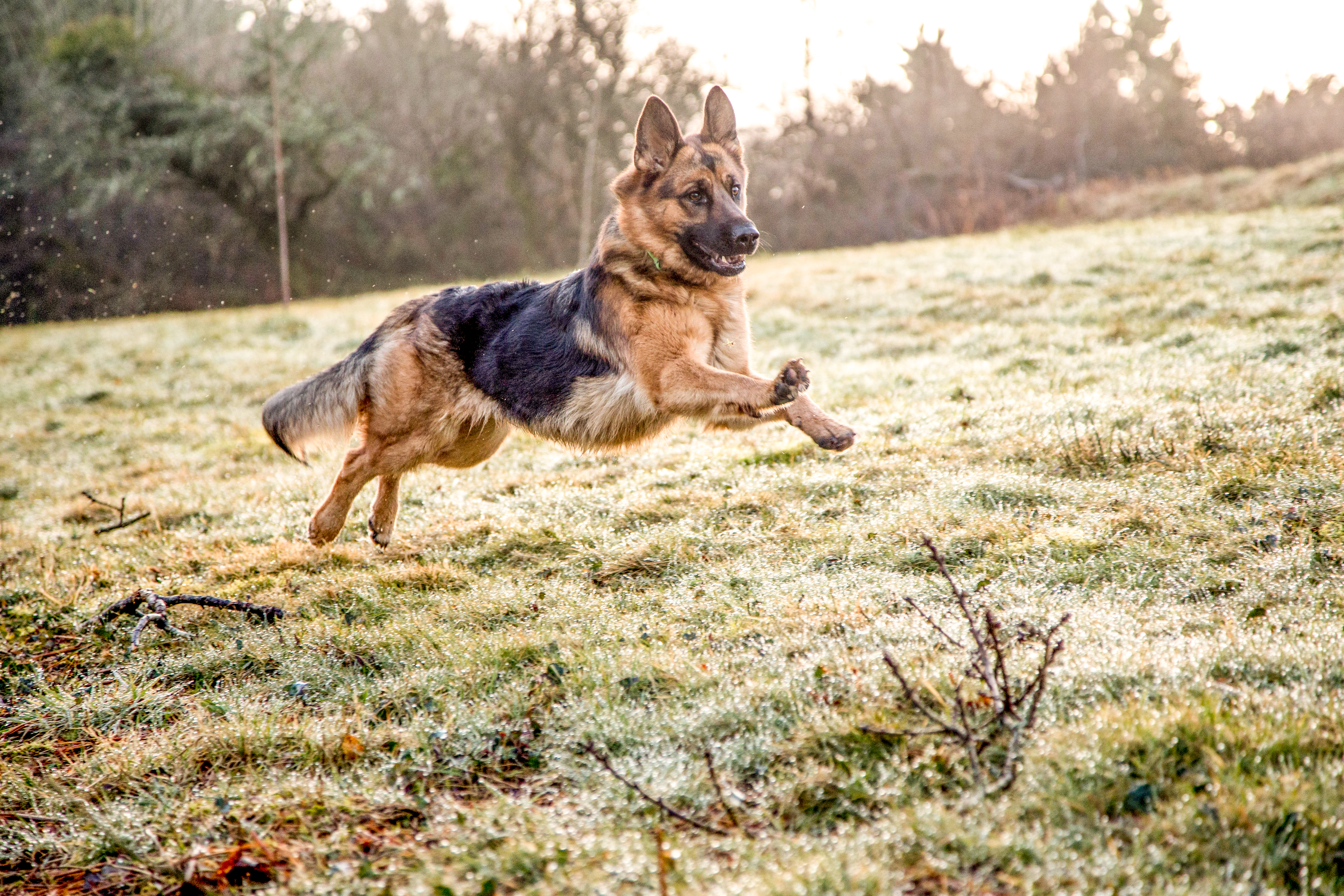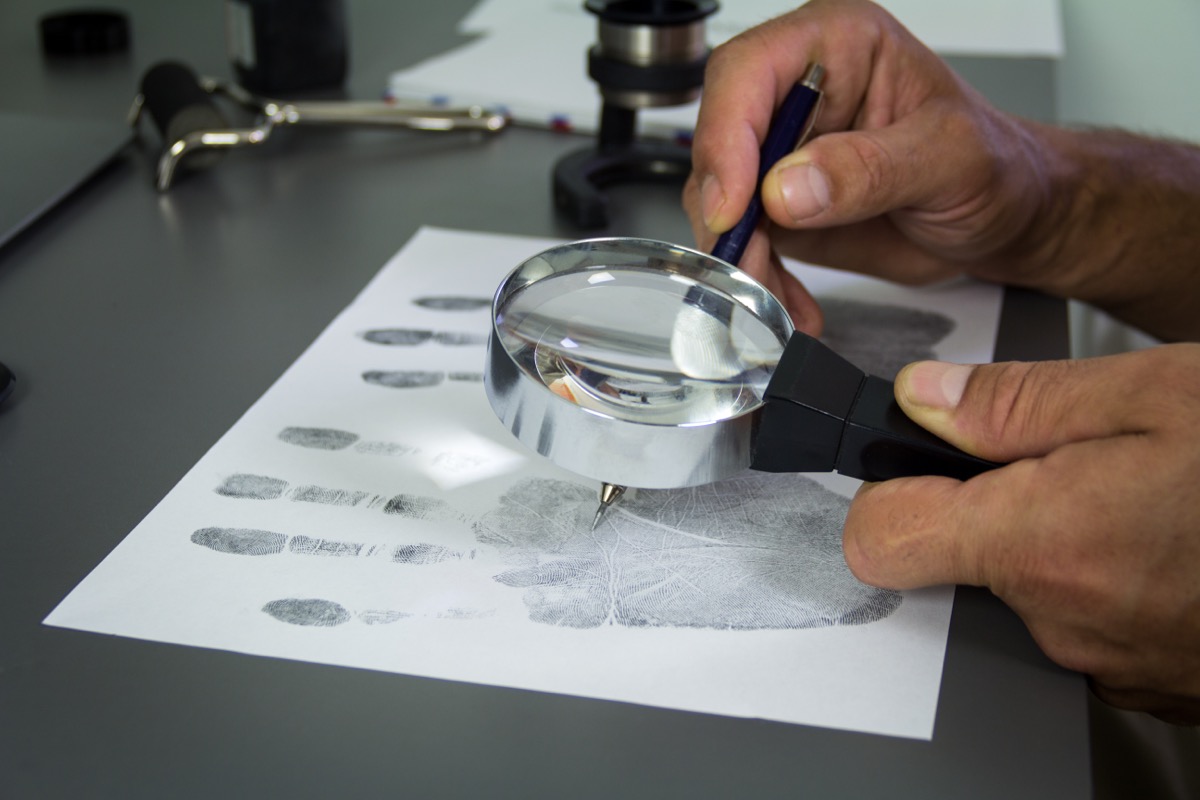8 Secrets the FBI Doesn’t Want You to Know

When it comes to law enforcement in the U.S., there’s no higher authority than the Federal Bureau of Investigation (FBI). After its founding as a small group of investigators in 1908, the agency got its official name in 1935 and has grown to employing over 35,000 people today. But while it’s common knowledge the bureau keeps an eye on everything from terrorism and counterespionage to white-collar crime and cybercrime on a national level, there’s still plenty the public doesn’t know about the top law enforcement agency’s inner workings and history. Read on for some of the secrets the FBI has managed to keep under wraps.
READ THIS NEXT: 8 Airport Security Secrets TSA Doesn’t Want You to Know.
1
The agency has a dedicated team of special agents for discretely gathering information.

As the nation’s top investigative body, the FBI has developed plenty of tactics to make their jobs easier. According to experts, this includes coming up with convincing ways to buy themselves enough time to gather evidence.
“To plant buffing devices and conduct electronic surveillance, the FBI uses Tactical Operations, a super-secret unit of FBI break-in artists who conduct court-authorized burglaries in homes, offices, and embassies to plant hidden microphones and video cameras and snoop into computers,” Ronald Kessler, author of The Secrets of the FBI, tells Best Life. “Besides terrorists, the targets may be Mafia figures, corrupt members of Congress, spies, or intelligence officers of Russia or China.”
“When conducting covert entries, TacOps may stage fake traffic accidents, traffic stops, or utility breakdowns to waylay occupants and security personnel,” Kessler says. “To conceal agents as they defeat locks and alarm systems, it creates false fronts to houses and fake bushes that hide agents. If caught breaking in, TacOps agents are in danger of being shot by occupants who think they are burglars.”
2
There are physical requirements for the job.

While the FBI is an investigative body and not a police force, it’s required for special agents to be in good physical shape for the sake of their job. In fact, it’s necessary to pass a fitness test during their annual performance reviews that include being able to do a certain amount of sit-ups and push-ups and run 300-meters and 1.5 miles under a specific time. Requirements are different for each age group and gender, but the youngest male agents between the ages of 23 and 29 have to complete 38 sit-ups, 29 push-ups, keep their 300-meter dash under a minute, and complete their 1.5-mile run in less than 12 and a half minutes, according to The New York Times.
3
The agency has ways to safely and humanely deal with guard animals.

It may be one thing to get the focus of an investigation out of their house for the afternoon, but it’s another issue entirely dealing with their pets or guard dogs. However, the FBI has also devised clever ways to minimize the risk and keep its agents and the animals safe.
“For TacOps agents breaking into homes, offices, and embassies to plant bugging devices, the greatest threat is dogs,” Kessler says. “They could be guard dogs or household pets. All spell trouble.”
In many cases, it can be as easy as winning the pups over with treats. “FBI agents may befriend dogs over a period of weeks, feeding them,” Kessler explains. “During a job, they may place them in sound-proof crates outfitted with food and water. Or they may tranquilize them with a sedative dart from a tranquilizer gun. When the job is finished, they will give them a shot to wake them. The dosages are determined beforehand by a veterinarian on contract.”
Kessler says agents will provide a picture and description of the dog in question, using their size and age to determine how the dog can safely be sedated. During an operation, agents will carry a kit with everything they need to treat the animal and avoid harming them at all costs.
For more behind-the-scenes intel delivered straight to your inbox, sign up for our daily newsletter.
4
The FBI has special jurisdiction over kidnapping cases.

The FBI goes to great lengths to stay within its purview and avoid overstepping its bounds as state and local law enforcement handle crimes and investigations. However, the agency will quickly step in during a suspected kidnapping. According to the bureau, any victim that is not located or released within 24 hours of being reported missing is presumed to have been transported over state lines, and the agency opens an investigation.
5
The agency has plenty of resources to help them blend in.

The idea of special agents donning elaborate costumes to carry out an investigation may seem like something out of a cliche spy movie. But according to experts, the FBI has perfected its disguise department to help with their jobs.
“A full wardrobe of about 50 assorted uniforms hangs on racks at the TacOps Support Center,” Kessler tells Best Life. “A graphics expert designs custom-made uniforms, fake I.D. and badges, and wraps with fake signs for trucks. Agents will pose as elevator inspectors, firefighters, or utility workers. Alternatively, they could pose as tourists wearing shorts and taking snapshots. They could be homeless people wearing tattered clothes.”
There is one constant across all disguises, however. “Agents select oversize clothes where they can hide their tools for breaking in,” Kessler says.
6
The FBI has ways of getting you out of your house when they want to investigate.

Everyone gets excited over the prospect of winning a special prize—apparently even potential criminals. The FBI has even been known to use this enthusiasm to help facilitate their investigations.
“We give people opportunities to travel and do exotic things,” an FBI official told Kessler. “‘You’ve won the lottery! You’ve won a trip, a free dinner! Congratulations, we picked your business card out of a bucket.’ That wasn’t luck. That was us, trying to present an opportunity.”
According to Kessler, once they’ve convinced a target to leave their home, it makes it easier for them to get inside to install listening devices.
READ THIS NEXT: 6 Secrets From Former USPS Employees.
7
They may already have your fingerprints on file—even if you’ve never been arrested.

Many assume that law enforcement only collects your fingerprints after you’ve been brought in for questioning or arrested for a crime. However, anyone who has ever submitted them as part of a job application, licensing process, or other type of background check is most likely on file in the agency’s Integrated Automated Fingerprint Identification System (IAFIS), Insider reports. The massive database in Clarksburg, West Virginia includes more than 100 million entries and can turn around search results in 12 to 15 minutes.
8
The agency has been known to use different tactics for misdirection during an on-site investigation.

Even if you’ve convinced them to leave home, it can be hard to conduct a covert operation if your target is in a busy area. But the agency has devised its own tactics for misdirection during its on-site investigations.
“To cover up noises or divert attention, the FBI may drive garbage trucks through the streets and bang the garbage cans around. They may start up a wood chipper or use a jackhammer to attack a piece of concrete that has been delivered to the location and dumped on the street,” Kessler explains. “They may use high-pressure water jets to clean the sidewalks to send passers-by scurrying. Agents may also enlist local police to park their cruisers with lights flashing nearby.”